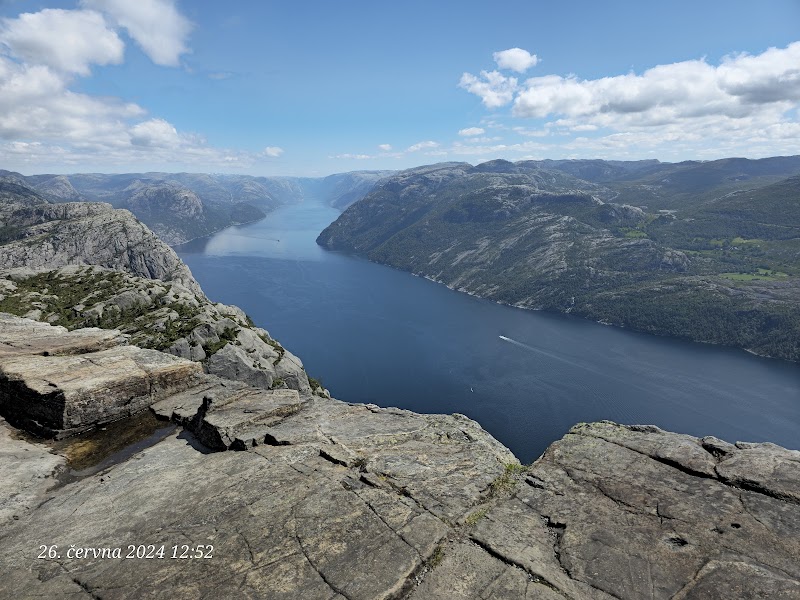
Lysefjord Adventures
Lysefjord is a striking fjord in southwestern Norway known for its spectacular cliffs and dramatic landscape, drawing outdoor enthusiasts from around the world.
About Lysefjord

Lysefjord, stretching 25 miles (42 km) from the village of Lysebotn to the mouth of the fjord near Stavanger, is one of Norway's most visited natural wonders. The fjord is flanked by towering cliffs, most famously Preikestolen (Pulpit Rock), a plateau reaching 1,982 feet (604 meters) above sea level, offering panoramic views over the water below. This area is rich in glacial history, with rugged geology evident throughout the fjord. The ecosystem in and around Lysefjord includes diverse flora and fauna, including native pine forests, seabirds, and marine life such as seals and porpoises. Historically, the fjord has been the site of small, isolated farms and fishing communities, some of which remain today as historical exhibits. Lysefjord's appeal to visitors lies not only in its natural beauty but also in the recreational opportunities it affords. Popular activities include hiking, rock climbing, and taking scenic boat trips to view the fjord’s incredible topography. The steep cliffs, dramatic waterfalls, and pristine water make it a photographer's paradise. Tourists are drawn year-round, with summer offering ideal conditions for hiking and winter providing a unique serenity under snow-covered peaks.
Highlights
Preikestolen (Pulpit Rock) – A famous hiking destination with awe-inspiring views.
Kjeragbolten – A boulder wedged between two cliffs, popular for adrenaline-seekers.
Base jumping from Kjerag – A premier location for this extreme sport.
Boat tours of the fjord – Offering unparalleled views of Lysefjord’s cliffs and wildlife.
Notable Natural Features
Preikestolen
Offers one of the most iconic views in Norway, a flat-topped cliff with panoramic vistas.
Kjerag
Known for Kjeragbolten, a rock lodged in a crevice, and popular for base jumping.
Lysebotn
A small village at the end of the fjord, known for its serpentine road with 27 hairpin bends.